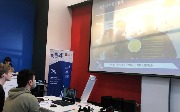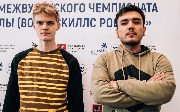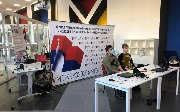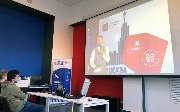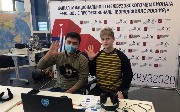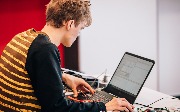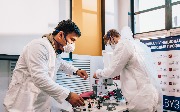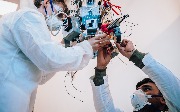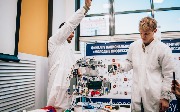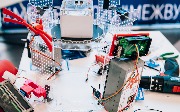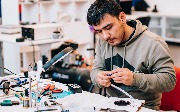WorldSkills Russia: MAI captures gold for the 4th time
MAI student team won gold in the "Space Systems Engineering" competition of the National Interuniversity Championship "Young Professionals" (WorldSkills Russia) for the fourth time in a row. The results were announced on the 7th December during the online closing ceremony.
The students who showed the highest results during the qualifying competition defended the honor of the University. Their names are Zakhar Anikin and Muhammadjon Akilov, third-year students of the Institute No. 6 "Aerospace".
"MAI is one the leader in the field of small spacecraft development. The developments of the student space design bureau „Iskra“ constitute an important part of several government programs. Despite the fact that this time the WS championship was held in a brand-new combined online and in-person format, MAI team was able to win gold in the „Space Systems Engineering“ for the fourth time. The result is indicating the systematic work of the university on the development of the engineering, management and leadership talents of students, and it is definitely achieved largely due to the individualization of educational trajectories ", — emphasized Maxim Kalyagin, the compatriot expert, senior lecturer of the MAI department 602 "Design and Strength of Aircraft, Rocket and Space Products".
The final stage of the competition was held on 3-5 of December, and for the very first time it was conducted in a new, distributed, remote and face-to-face format. The tasks were to be solved at the sites of the universities of the participants under the supervision via the webcams. MAI residents worked at the territory of the MAI children’s technopark "Takeoff Trajectory".
According to the terms of the task they had to elaborate, assemble and test the Earth remote probing microsatellite. They had to be able to calculate payloads correctly, to know ballistics and understand flight dynamics, and to master the basics of the theory of the reliability of service systems in order to perform the full range of activities required — starting from the project idea development and ending with the operation of the equipment at the orbit. Knowledge of electronics, radio engineering, programming and materials science was important too.
The team designed and manufactured the reflector and the solar panel deployment mechanism by themselves. On the final day of the competition they assembled a mock-up of the satellite and tested it on a special semi-natural simulation stand, where they had to confirm its performance.
The expert community that evaluated the development was represented by more than 220 people.
